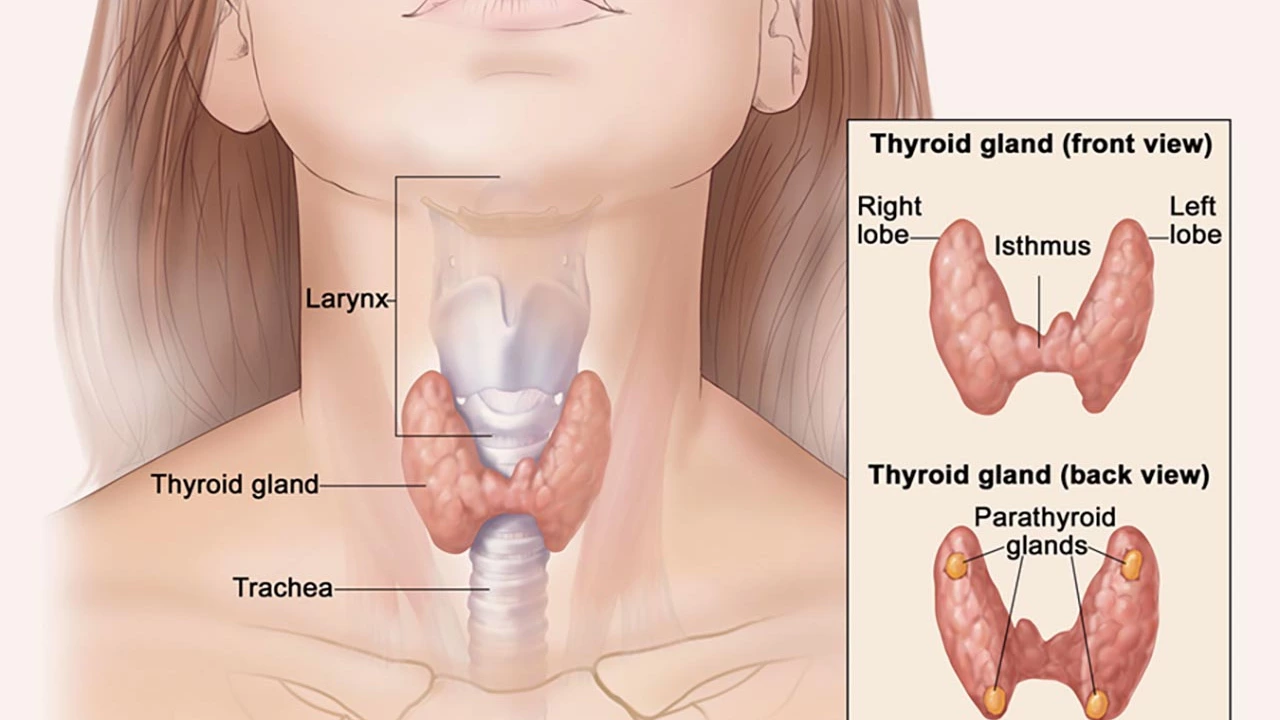
Thyroid deficiency, also known as hypothyroidism, is a condition that impacts the functioning of your thyroid gland. This gland, located at the front of your neck, produces hormones that are crucial for the body's metabolic processes. When your thyroid doesn't produce enough of these hormones, it can lead to a range of health issues, including fatigue, weight gain, depression, and more. Because the eyes are so closely connected to the thyroid, this deficiency can impact your vision and overall eye health as well.
So, what exactly is the connection between thyroid deficiency and eye health? The two are closely linked because the thyroid hormones play a key role in the development and functioning of the eyes. When there's a deficiency in these hormones, it can lead to a condition known as thyroid eye disease. This can cause a range of eye-related symptoms, like dry eyes, blurred vision, and in severe cases, even loss of vision.
Thyroid eye disease can present with a variety of symptoms, and it's important to recognize these early on. Common signs include redness or swelling in the eyes, sensitivity to light, excessive tearing, and a feeling of grittiness in the eyes. You may also notice changes in your vision, such as double vision or reduced visual acuity. If you're experiencing any of these symptoms, it's important to seek medical attention as soon as possible.
One of the main ways that thyroid deficiency can impact your eye health is through its effect on your vision. Thyroid hormones are essential for the development of the retina, the part of the eye that is responsible for vision. When there's a deficiency in these hormones, it can impact the functioning of the retina, leading to vision problems. These can range from minor issues like blurred vision to more serious problems like loss of vision.
Fortunately, there are a number of treatment options available for thyroid eye disease. These typically involve managing the underlying thyroid deficiency and treating the eye-related symptoms. Treatment may include hormone replacement therapy, eye drops to alleviate dryness, or surgery in severe cases. The exact treatment plan will depend on the severity of your symptoms and your overall health.
While it's not always possible to prevent thyroid deficiency and the resulting eye disease, there are steps you can take to reduce your risk. These include maintaining a healthy lifestyle, getting regular check-ups to monitor your thyroid function, and seeking treatment at the first sign of symptoms. By being proactive about your health, you can help protect your eyes and maintain your vision.
Living with thyroid eye disease can be challenging, but with the right treatment and support, it's manageable. It's important to follow your doctor's advice and take your medication as prescribed. Regular eye exams are also crucial to monitor your condition and prevent further damage to your eyes. With time, patience, and proper care, you can manage your symptoms and maintain your quality of life.
Diet plays a crucial role in managing thyroid deficiency and promoting eye health. Foods rich in iodine, selenium, and zinc can help support thyroid function and prevent deficiency. Additionally, maintaining a healthy diet can also help protect your eyes. Foods rich in vitamins A, C, and E, as well as omega-3 fatty acids, can help keep your eyes healthy and reduce the risk of eye disease.
Stress can have a significant impact on your thyroid function, and managing stress is crucial when dealing with thyroid deficiency. Chronic stress can lead to a disruption in the production of thyroid hormones, exacerbating existing deficiency and contributing to eye disease. It's important to find healthy ways to manage stress, such as meditation, exercise, or seeking support from a therapist or support group.
In conclusion, thyroid deficiency can have a significant impact on your eye health and vision. Recognizing the symptoms and seeking treatment early on can help prevent serious complications and protect your vision. It's important to understand that while thyroid deficiency can be challenging to manage, with the right support and care, you can live a healthy, fulfilling life.